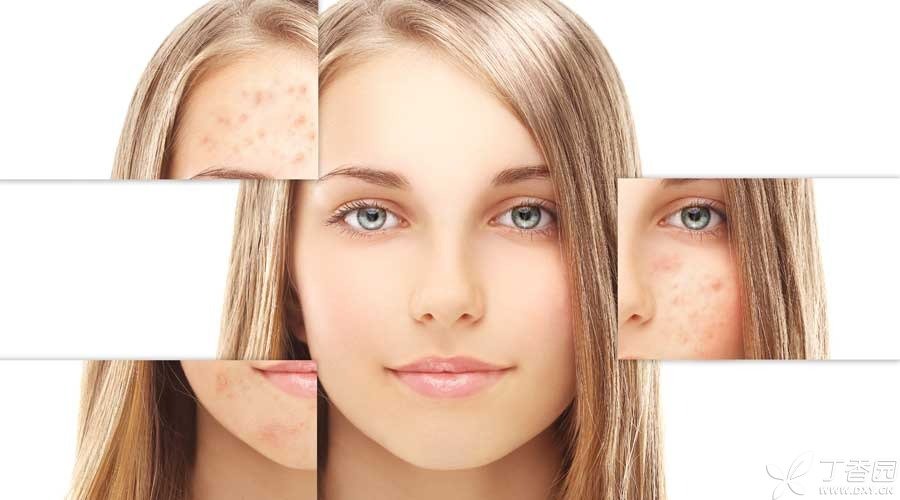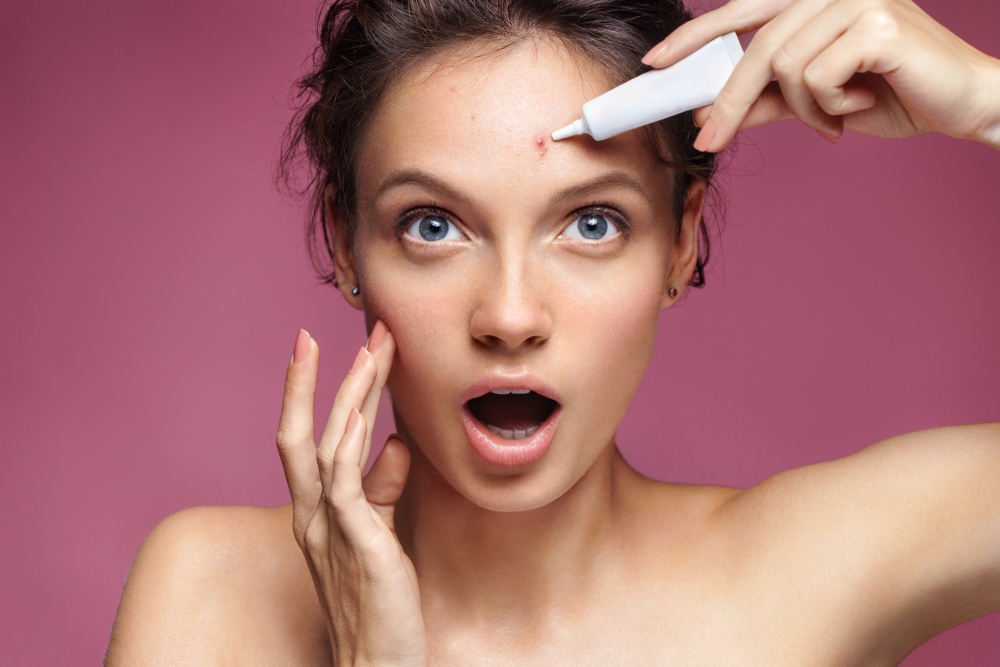
Acne, also known as acne and common sore, is found in many countries. Epidemiological surveys show that the incidence rate of the disease is as high as 80% among teenagers aged 12-24. Even among young people over 25 years old, the incidence rate of men and women is as high as 54% and 40% respectively. Some people are even troubled by acne in their 40s and 50s.
Many girls who love beauty don’t care how much energy and money they spend in order to overcome acne. All kinds of [acne removal] products are selling very well on the Internet and TV advertisements.
Do those so-called “acne-removing artifacts” really work that well? How should I nurse after acne? Today we will talk about this topic that will never go out of date.
Why are there [white heads] and [blackheads]?
Some people wonder why there are white heads and blackheads when acne grows.
In fact, the formation principle of the two is the same. Sebum secreted by sebaceous glands cannot be accumulated in hair follicle sebaceous glands through blocked duct orifices. Acne caused by complete blockage is primitive white due to good sealing. Open acne is not completely blocked, sebum is oxidized and turns black, that’s all. There is no big difference in their treatment.
What should be paid attention to in skin care?
Step 1 Wash your face
The root cause of acne is that keratinocytes in the hair follicle sebaceous gland duct proliferate, blocking the duct and preventing sebum from being discharged, thus forming acne visible to the naked eye. Washing face helps remove hyperplasia of keratinocytes and reduces duct blockage. However, it should be noted that:
- Don’t wash your face too often. It is enough to wash your face 2-3 times a day (early, late and after exercise). Washing your face too frequently is easy to damage the skin barrier, and sometimes it will lead to increased sebaceous gland grease secretion and aggravate acne. The temperature of water should be moderate, preferably 32 ~ 40 ℃. Supercooled water temperature will cause pore contraction, which is not conducive to the removal of hair follicle cutin. Overheating will damage the skin barrier. Don’t rub hard, and try not to use facial cleanser containing frosted particles. Although it can temporarily remove hair follicle cutin, it is easy to cause skin damage if you can’t control the discretion. In the long run, it increases the risk of pigmentation after acne inflammation.
Step 2 Moisturize
Many girls with acne always feel that they are oily skin and always try their best to [remove oil]. Little imagine, light moisturizing is more important than removing oil.
After cleansing, the lipid on the skin surface decreases, and sebaceous glands will secrete more grease due to this stimulation. If you do not pay attention to moisturizing, acne will grow more and more seriously. The ideal moisturizing agent should have the functions of reducing skin gland secretion, resisting inflammation and repairing skin barrier.
- The skin quality of acne patients is usually oily, mixed and neutral. The more suitable moisturizing dosage form is gel or emulsion, and it is recommended to choose products with the function of repairing cutin barrier (medical skin care products with DMS technology are preferred); Do not use products containing silicone oil, animal oil and vaseline. Different seasons, regions, working and living environment and age are also important factors in choosing humectants. When it is relatively dry like autumn and winter, products that are more moisturizing than spring and summer should be used.
In addition, you should pay more attention to moisturizing when living in the north than in the south.
At the same time, after the age of 25, you should also adjust your skin care products and change to a more moisturizing dosage form. If you originally used gel or emulsion, you should change to cream.

STEP 3 Sunscreen
Acne patients should pay special attention to sun protection.
One is to avoid pigmentation caused by sun exposure and leave ugly pockmarks. Second, commonly used drugs for acne treatment, such as tretinoin preparations and doxycycline, often aggravate skin irritation and even allergy under the sun.
It should be noted that besides paying attention to sunlight, sun protection also includes solar lamps that can emit ultraviolet rays.
For girls with acne, physical sun protection methods should be preferred, such as holding umbrellas, wearing hats, wearing masks, sunglasses, etc.
If you use sunscreen, you should pay attention to some chemical components, such as benzophenone-3, an ultraviolet absorber commonly used in various sunscreens, which is a contact allergen and has the risk of increasing allergy.
Applying sunscreen is not once and for all when you go out. The intensity of ultraviolet rays, the thickness of application and the amount of sweat all affect the sunscreen effect.
4. Anti-smog
From the perspective of dermatology, during the period of serious air pollution in recent years, the attendance rate of eczema, atopic dermatitis and some allergic skin diseases in some cities in China has increased significantly.
For inflammatory skin diseases, including acne, there are more or less secondary skin barrier function damage, skin allergy, susceptible to pollutants in the ambient air, resulting in skin irritation reaction.
Therefore, when it is smoggy, you should wear a mask when you go out.
5. Other
Maintaining adequate sleep can help prevent acne.
When choosing cosmetics again, you need to carefully read the instructions when purchasing to see if there is any description of acne-free ingredients. Or avoid using cosmetics except basic care during acne rampant periods.
Special attention should be paid to the fact that acne squeezing is a forbidden behavior, which will not only aggravate skin infection, but also leave ugly scars.
Acne in special parts, such as acne in the dangerous triangle of the face, may cause intracranial infection and serious consequences if squeezed without authorization.
The key to acne is clear diagnosis and basic nursing, which is only used as an aid to treatment. Mild acne can be cured by paying attention to nursing and diet.
However, some cases need to be treated with medicine. If delayed, the course of the disease will be delayed and even more serious scars will be left.
Fighting acne is a long and complicated road. During this period, besides paying attention to life and diet, it is more important to get the guidance of dermatologists so as to make the road less annoying.
Editor: Zhang Jingyuan
Author: Liu Xin
This article is exclusively authorized to be used by Clove Garden and refuses any other form of reprinting.
